Explore the six Working Groups addressing the standards that relate to our College's mission and philosophy, academic programming, operations and student experience.
Working Group #1 | Working Group #2 | Working Group #3
Working Group #4 | Working Group #5 | Working Group #6
Working Group #1: Mission, Ethics, and Integrity
Standard I: Mission and Goals
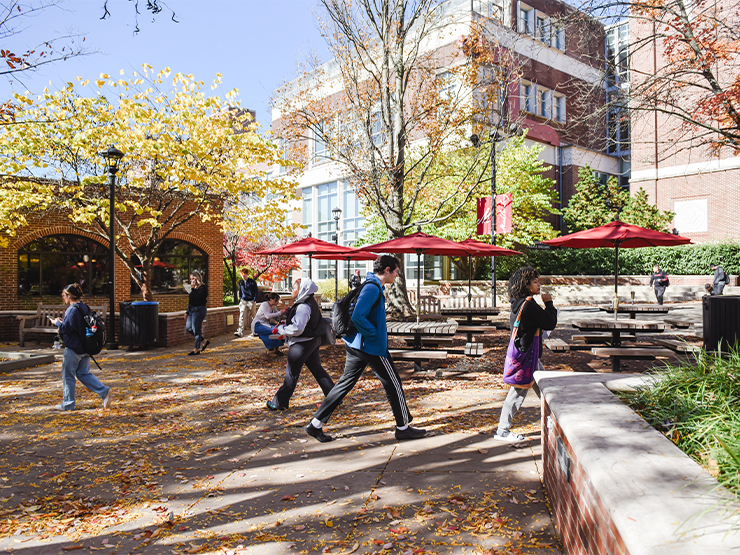
The institution’s mission defines its purpose within the context of higher education, the students it serves, and what it intends to accomplish. The institution’s stated goals are clearly linked to its mission and specify how the institution fulfills its mission.
Standard II: Ethics and Integrity
Ethics and integrity are central, indispensable, and defining hallmarks of effective higher education institutions. In all activities, whether internal or external, an institution must be faithful to its mission, honor its contracts and commitments, adhere to its policies, and represent itself truthfully.
- Mark Stein, Co-Chair, Professor of History
- Kelly Cannon, Librarian for Scholarly Communication, Trexler Library
- William “Chip” Gruen, Professor of Religion Studies
- Janelle Neubauer, College Chaplain and Director of Religious and Spiritual Life
- Jennifer Storm, Director of Equity and Title IX
Working Group #2: Design and Delivery of the Student Learning Experience
Standard III: Design and Delivery of the Student Learning Experience
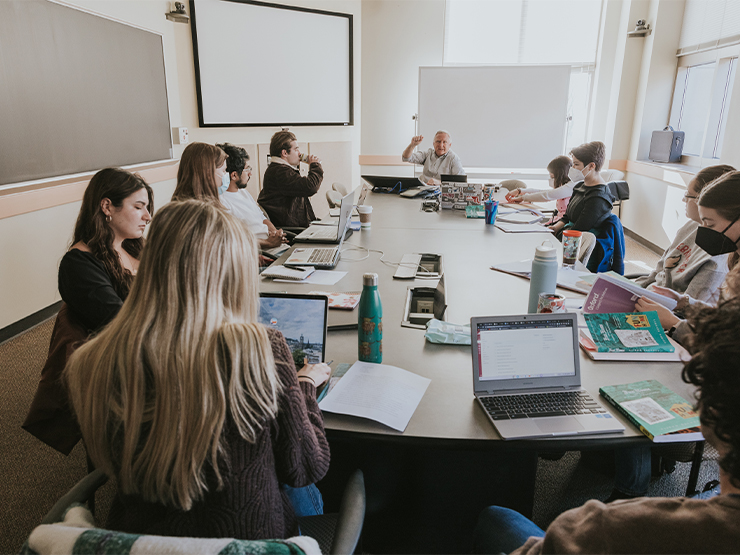
An institution provides students with learning experiences that are characterized by rigor and coherence at all program, certificate, and degree levels, regardless of instructional modality. All learning experiences, regardless of modality, program pace/schedule, level, and setting are consistent with higher education expectations.
Working Group Members
- Christine Ingersoll, Co-Chair, Professor of Chemistry
- Brian Mello, Co-Chair, Department Chair and Professor of Political Science
- Joshua Barsczewski, Assistant Professor of English, Writing Program Director
- Ioanna Chatzidimitriou, Associate Professor of French
- Ellie FitzPatrick Sifford, Associate Professor of Art History
- Cathy Kim, Senior Lecturer of Education, Coordinator of Professional Programs
- Michael Miller, Dean of Continuing Education
- Lora Taub P'25, Professor of Media and Communication
Working Group #3: Support of the Student Experience
Standard IV: Support of the Student Experience
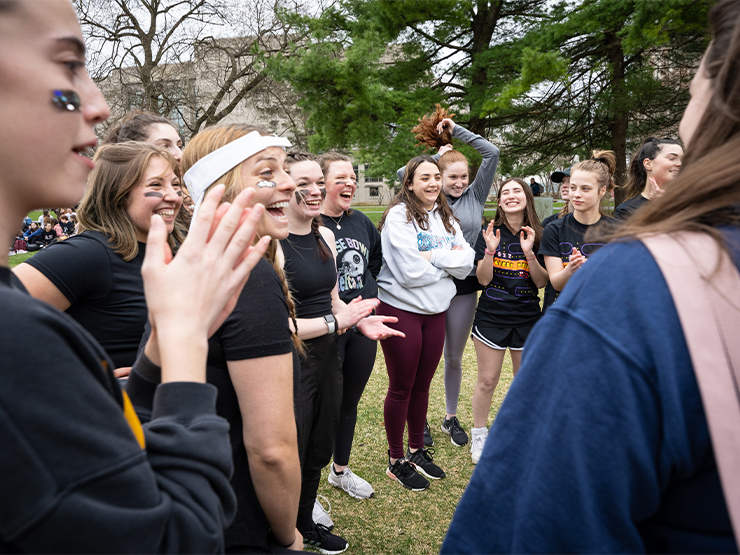
Across all educational experiences, settings, levels, and instructional modalities, the institution recruits and admits students whose interests, abilities, experiences, and goals are congruent with its mission and educational offerings. The institution commits to student retention, persistence, completion, and success through a coherent and effective support system sustained by qualified professionals, which enhances the quality of the learning environment, contributes to the educational experience, and fosters student success.
Working Group Members
- Lindsey Nagy, Co-Chair, Associate Professor of Economics
- Sharon Albert, Senior Lecturer of Religion Studies and Director of Advising
- Nicole Barela-Vess '15, Program Development Manager, Division of Graduate and Continuing Education
- Gabriel Hurtado '13, Director of Enrollment Data Initiatives
- Robin Riley-Casey, Associate Dean of Students and Director of Student Diversity Intiatives
- Sean Schofield, Career Center Executive Director
- Sean Topping '98, Head Coach of Men’s Soccer and Assistant Athletic Director for Recruitment and Retention
Working Group #4: Educational Effectiveness Assessment
Standard V: Educational Effectiveness Assessment
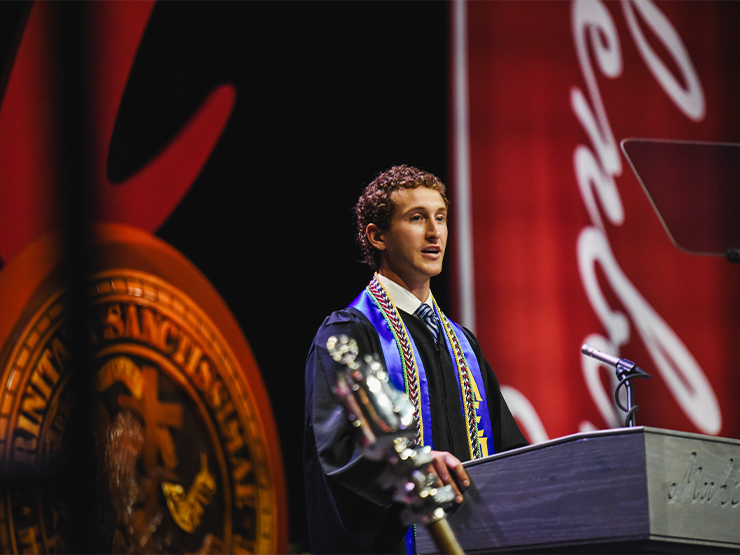
Assessment of student learning and achievement demonstrates that the institution's students have accomplished educational goals consistent with their program of study, degree level, the institution’s mission, and appropriate expectations for institutions of higher education.
Working Group Members
- Erika Bagley, Co-chair, Professor of Psychology
- Elizabeth McCain, Co-chair, Professor of Biology and Academic Assessment Coordinator
- Andrew Ardizzoia, Associate Professor of Music
- Laura Edelman, Dean of Institutional Research, Assessment and Effectiveness and Professor of Psychology
- Giancarlo Cuadra, Associate Professor of Biology
- Gretchen Gotthard, Dean of Academic Life and Professor of Neuroscience and Psychology
- Susan Kahlenberg '93, P '25, Professor of Media & Communication and Academic Assessment Coordinator
- Ashley Sardik, Assistant Dean of Students and Director of the Residential Experience
Working Group #5: Planning, Resources and Institutional Improvement
Standard VI: Planning, Resources and Institutional Improvement
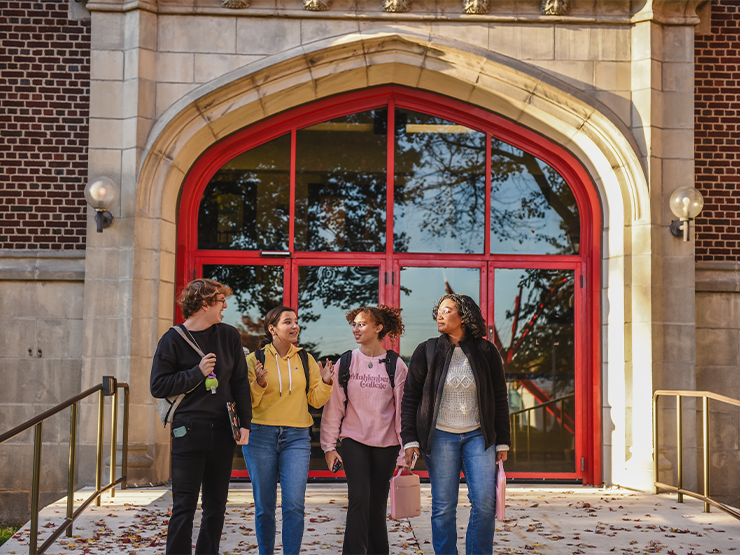
The institution’s planning processes, resources, and structures are aligned with each other and are sufficient to fulfill its mission and goals, to continuously assess and improve its programs and services, and to respond effectively to opportunities and challenges.
Working Group Members
- Bruce Anderson, Co-chair, Professor of Chemistry
- Rebekkah Brown '99, Co-chair, Vice President for Advancement
- José Dieudonne, Chief Information Officer
- Daniel Leisawitz, Associate Professor of Italian Studies
- Eleanor Lewis, Chief Budget Officer and Director of Financial Reporting
- Lanethea Mathews-Schultz, Professor of Political Science
- Courtney Stephens, Associate Dean of Students
- Curtis Topper, Chief Financial Officer and Treasurer
Working Group #6: Governance, Leadership, and Administration
Standard VII: Governance, Leadership, and Administration
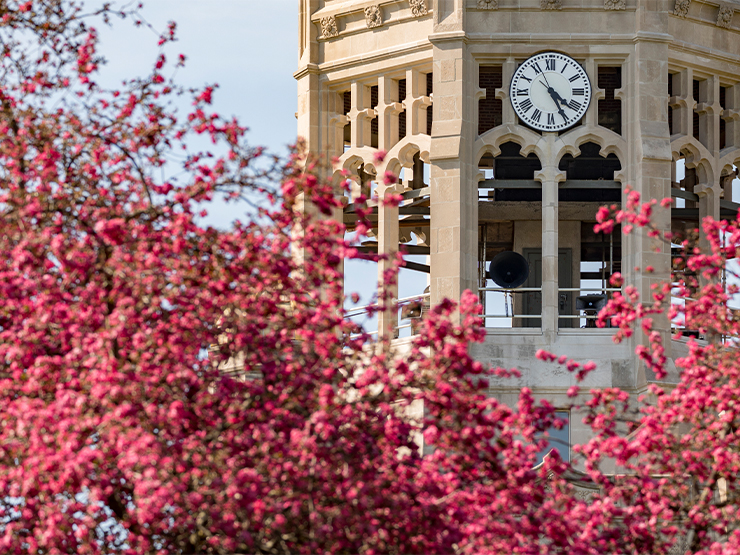
The institution is governed and administered in a manner that allows it to realize its stated mission and goals in a way that effectively benefits the institution, its students, and the other constituencies it serves. Even when supported by or affiliated with governmental, corporate, religious, educational systems, or other unaccredited organizations, the institution has education as its primary purpose, and it operates as an academic institution with appropriate autonomy.
Working Group Members
- Bruce Wightman, Co-Chair, Professor of Biology
- Tina Hertel P '18, Co-Chair, Director of Trexler Library
- Michael Allocca, Associate Professor of Mathematics
- David Jenkins '83, Member of the Board of Trustees
- AJ Lemheney, Vice President and Executive Director of Graduate and Continuing Education
- Ellen Lentine, Director of Seegers Union and the Student Experience
- Richard Romeo '79, Member of the Board of Trustees
- Kammie Takahashi, Associate Professor of Religion Studies and Associate Dean of Student Awards and Research
- Jill Walsh, Vice President of Human Resources
Evidence Inventory Team
- David Hallowell, Chair, Assistant Dean of Academic Life and Director of the Academic Resource Center
- Gabriel Hurtado ’13, Director of Enrollment Data Initiatives
- Lisa Lewis, Assistant Dean for Graduate and Continuing Education
- Stephen Payne, Executive Director for External Relations
- Ginger Yavorski ’03, Registrar
